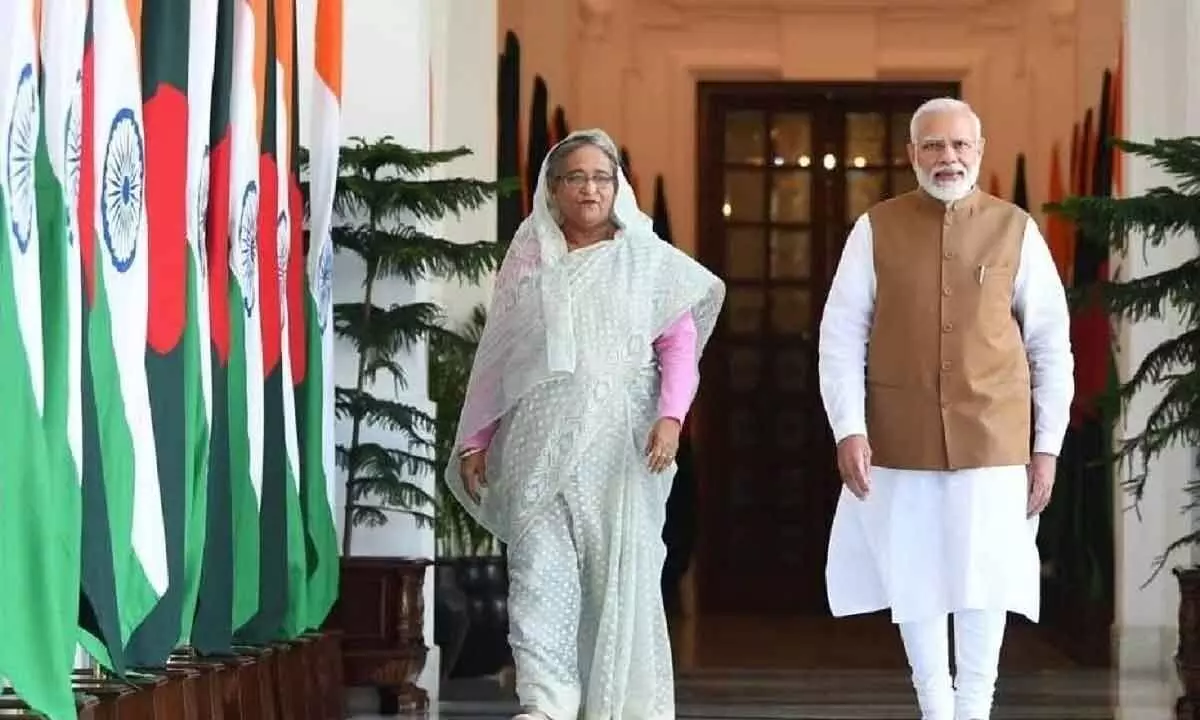India’s strong backing is a diplomatic pre-poll morale-booster for Hasina
image for illustrative purpose

Bangladesh is going to polls on January 7 amidst threats of boycott by the main opposition Bangladesh Nationalist Party (BNP) and its ally- Jamaat-e-Islami. If the outcome of the recent two-plus-two ministerial dialogue between the Indian and the US administration is a pointer, then New Delhi is rock-solid in its support for the current dispensation in power. The ministerial dialogue is an annual diplomatic summit being held since 2018, where in Indian Foreign and Defence ministers deliberate with the US Secretary of State and Secretary of Defense on common issues of concern as a means to improve and strengthen bilateral relations. At the end of this year’s dialogue, Indian foreign secretary Vinay Mohan Kwatra said, “As far as Bangladesh is concerned, we shared our perspective very clearly”. Reportedly Foreign Minister S Jaishankar has communicated to the US Secretary of State Antony Blinken that “unwelcome interference” in the Bangladesh poll process would jeopardise regional security and stability. India also cautioned that any intervention in the Bangladesh elections would boomerang on western countries that interfere.
Diplomatic experts feel that India’s recent actions like withdrawing cover to Canadian diplomats and the way it has dealt with Canada over the ‘Nijjar killing’ has bust the myth that the west is all-powerful and smaller nations must toe the western line. New Delhi has aptly stated that unreasonable demands and attempts to interfere can be disregarded and resisted. The crux of the problem lies in some of the western countries (including the US) urging Bangladesh Prime Minister Sheikh Hasina to concede the Opposition’s demand and step down for the sake of democracy and free and fair elections so that the election process can be overseen by an interim caretaker government. Interestingly, with India’s strong support, Sheikh Hasina has successfully resisted pressure from the US, UK and the European Union and continues in office.
India minced no words in explaining to the Western nations and elaborated on the links between the BNP and radical Islamist forces. It is in the interest of India that the Hasina government should continue in office. The bilateral relationship- be it diplomatic, economical, socio-cultural- is at its peak now. Both Delhi and Dhaka are keen on consolidating and building up on this to take the relationship to the next level. RSS, which is perceived to be the guiding force behind running the BJP government at the Centre, also subscribes to this view.
The Hasina government, understandably, lapped up India’s stand and public posturing, which was clearly reflected in what her special Secretary said post 2+2 Dialogue. “Our country follows the foreign policy golden rule of friendship towards all and malice towards none, which was formulated by the Father of the Nation, Mujibur Rahman. We appreciate whatever he (Kwatra) said as it captures India’s respect for us,” he said. India, on its part, must keep a close watch on what’s happening in Bangladesh, to ward off any likely threat or hidden dangers from China and Pakistan.

